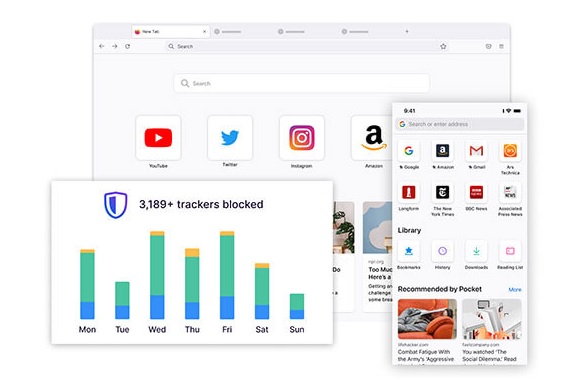Mozilla Firefox is a free web browser for Windows and Mac. The open-source program underwent a series of name changes, makeovers, and updates to become the better software it is today. It was first released by the Mozilla Foundation in 2003.
History of Firefox
In 2002, the US business that created the Mozilla Suite already had a functioning browser, but they wished to circumvent Netscape’s sponsorship limitations. Since then, it has grown in popularity across a variety of operating systems, including Windows 11, 10, 8.1, 8, 7, Mac, Linux, and mobile devices.
The platform’s vivid, alluring look attracts the majority of users, and its ease of use and few menu selections rank among its top benefits. Firefox can compete with some of the fastest browsers on the market while using less memory and other Windows resources. It doesn’t have advanced development tools though.
Firefox and security measures
Whether Mozilla Firefox is safe to download and use is one of the top worries for everyone using a browser. The German Federal Office for Information Security declared it the world’s safest web browser in 2019. The list of trustworthy certificates in Firefox was found to be the best feature of all those examined.
For both 32-bit and 64-bit operating systems, the platform offers robust privacy safeguards that shield your PC from tracker cookies. The certificates passed both the Online Certificate Status Protocol and Certification Revocation List verification tests. Mozilla Firefox also provides sufficient symbol and colour indication to indicate if a site is encrypted or not.
Firefox offers HTTP Strict Transport Security and supports the Same Origin Policy, which add to its security capabilities. You may use a password manager to store all of your information safely in one location, and you’ll get frequent updates to guarantee maximum functionality. Additionally, if you’d like, you may erase your browser history and prevent and delete cookies.








